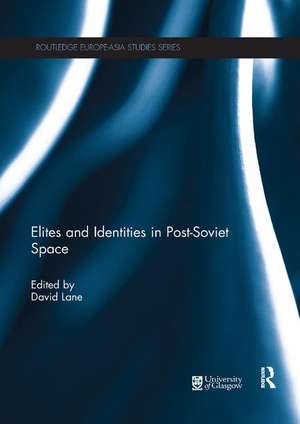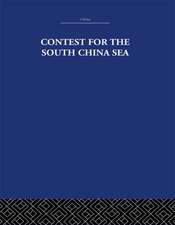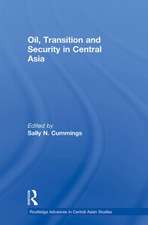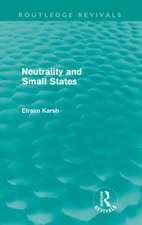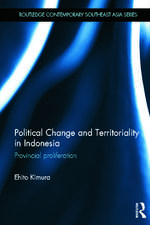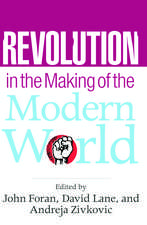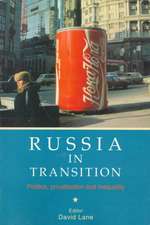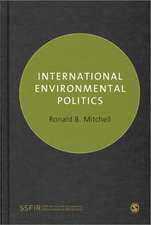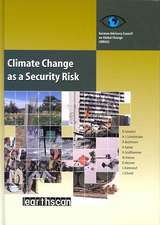Elites and Identities in Post-Soviet Space: Routledge Europe-Asia Studies
Editat de David Laneen Limba Engleză Paperback – 24 mai 2017
The formation of national identity also occurred in the context of the process of increasing economic and political globalisation, particularly the widening of the European Union to include the central European post-socialist and Baltic States. Internationally, Russia sought to establish a new identity either as a European or as a Eurasian society and had to accommodate the interests of a wider Russian Diaspora in the ‘near abroad’.
This book addresses how domestic elites (regional, political and economic) influenced the formation of national identities and the ways in which citizenship has been defined. A second component considers the external dimensions: the ways in which foreign elites influenced either directly or indirectly the concept of identity and the interaction with internal elites. The essays consider the role of the European Union in attempting to form a European identity. Moreover, the growing internationalisation of economies (privatisation, monetary harmonisation, dependence on trade) also had effects on the kind of ‘national identity’ sought by the new nation states as well as the defining by them of ‘the other’.
The collection focuses on the interrelations between social identity, state and citizenship formation, and the role of elites in defining the content of concepts in different post-communist societies.
This book was originally published as a special issue of Europe-Asia Studies.
| Toate formatele și edițiile | Preț | Express |
|---|---|---|
| Paperback (1) | 299.52 lei 6-8 săpt. | |
| Taylor & Francis – 24 mai 2017 | 299.52 lei 6-8 săpt. | |
| Hardback (1) | 766.31 lei 6-8 săpt. | |
| Taylor & Francis – 4 apr 2012 | 766.31 lei 6-8 săpt. |
Din seria Routledge Europe-Asia Studies
-
 Preț: 347.81 lei
Preț: 347.81 lei -
 Preț: 311.41 lei
Preț: 311.41 lei -
 Preț: 383.33 lei
Preț: 383.33 lei - 16%
 Preț: 117.58 lei
Preț: 117.58 lei - 18%
 Preț: 1019.30 lei
Preț: 1019.30 lei -
 Preț: 389.22 lei
Preț: 389.22 lei - 16%
 Preț: 262.96 lei
Preț: 262.96 lei - 20%
 Preț: 259.98 lei
Preț: 259.98 lei - 17%
 Preț: 259.92 lei
Preț: 259.92 lei - 17%
 Preț: 183.77 lei
Preț: 183.77 lei - 12%
 Preț: 325.34 lei
Preț: 325.34 lei - 17%
 Preț: 215.19 lei
Preț: 215.19 lei - 17%
 Preț: 258.91 lei
Preț: 258.91 lei - 19%
 Preț: 268.18 lei
Preț: 268.18 lei - 12%
 Preț: 325.34 lei
Preț: 325.34 lei - 12%
 Preț: 299.52 lei
Preț: 299.52 lei -
 Preț: 370.71 lei
Preț: 370.71 lei - 12%
 Preț: 325.34 lei
Preț: 325.34 lei - 25%
 Preț: 553.44 lei
Preț: 553.44 lei -
 Preț: 393.03 lei
Preț: 393.03 lei - 24%
 Preț: 129.36 lei
Preț: 129.36 lei - 12%
 Preț: 299.52 lei
Preț: 299.52 lei - 25%
 Preț: 499.39 lei
Preț: 499.39 lei - 13%
 Preț: 324.86 lei
Preț: 324.86 lei - 17%
 Preț: 250.96 lei
Preț: 250.96 lei - 26%
 Preț: 707.74 lei
Preț: 707.74 lei - 18%
 Preț: 1000.76 lei
Preț: 1000.76 lei - 18%
 Preț: 999.82 lei
Preț: 999.82 lei - 25%
 Preț: 851.27 lei
Preț: 851.27 lei - 26%
 Preț: 766.12 lei
Preț: 766.12 lei
Preț: 299.52 lei
Preț vechi: 341.57 lei
-12% Nou
Puncte Express: 449
Preț estimativ în valută:
57.32€ • 59.62$ • 47.32£
57.32€ • 59.62$ • 47.32£
Carte tipărită la comandă
Livrare economică 15-29 aprilie
Preluare comenzi: 021 569.72.76
Specificații
ISBN-13: 9781138118461
ISBN-10: 113811846X
Pagini: 224
Dimensiuni: 174 x 246 mm
Greutate: 0.45 kg
Ediția:1
Editura: Taylor & Francis
Colecția Routledge
Seria Routledge Europe-Asia Studies
Locul publicării:Oxford, United Kingdom
ISBN-10: 113811846X
Pagini: 224
Dimensiuni: 174 x 246 mm
Greutate: 0.45 kg
Ediția:1
Editura: Taylor & Francis
Colecția Routledge
Seria Routledge Europe-Asia Studies
Locul publicării:Oxford, United Kingdom
Public țintă
Postgraduate and ProfessionalCuprins
1. Identity Formation and Elites in the Post-Socialist States, David Lane Part 1: Conceptualising Identities 2. European Identity Making and Identity Transfer, Ireneusz Pawel Karolewski 3. Russia’s Identity: Between the ‘Domestic’ and the ‘International’ Richard Sakwa 4. Neoliberalism, Exogenous Elites and the Transformation of Solidarity, Peter Zeniewski Part 2: Formation of Elites 5. The Elite-Population Gap in the Formation of Political Identities. A Cross-Cultural Investigation, Heinrich Best 6. Business Elites and the Role of Companies in Society: A Comparative Study of Poland, Hungary and Germany, Katharina Bluhm, Bernd Martens and Vera Trappmann 7. Supranational Attachment of European Elites and Citizens, Győrgy Lengyel Part 3: Country Studies 8. Balancing National Uncertainty and Foreign Orientation: Identity-Building and the Role of Political Parties in Post-Orange Ukraine, Inna Melnykovska, Rainer Schweickert, and Tetiana Kostiuchenko 9. Chechen Elites: Control, Cooption or Substitution? John Russell 10. Citizenship, Collective Identity and the International Impact on Integration Policy In Estonia, Latvia And Lithuania, Magdalena Solska 11. The Dynamics of Elite Networks and Patron-Client Relations in Afghanistan, Timor Sharan
Descriere
The collection considers the interrelations between social identity, state and citizenship formation, and the role of elites in defining the content of concepts in different post-communist societies.
The contributors, many with an international reputation, are drawn from a number of different disciplines: post-communist area studies, political economy, politics, international relations, sociology and anthropology.
This book was originally published as a special issue of Europe-Asia Studies.
The contributors, many with an international reputation, are drawn from a number of different disciplines: post-communist area studies, political economy, politics, international relations, sociology and anthropology.
This book was originally published as a special issue of Europe-Asia Studies.
